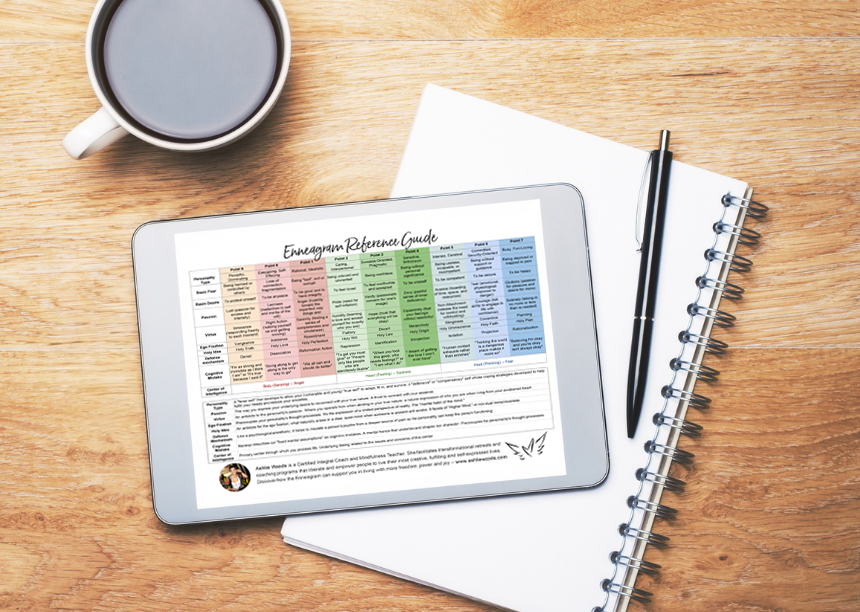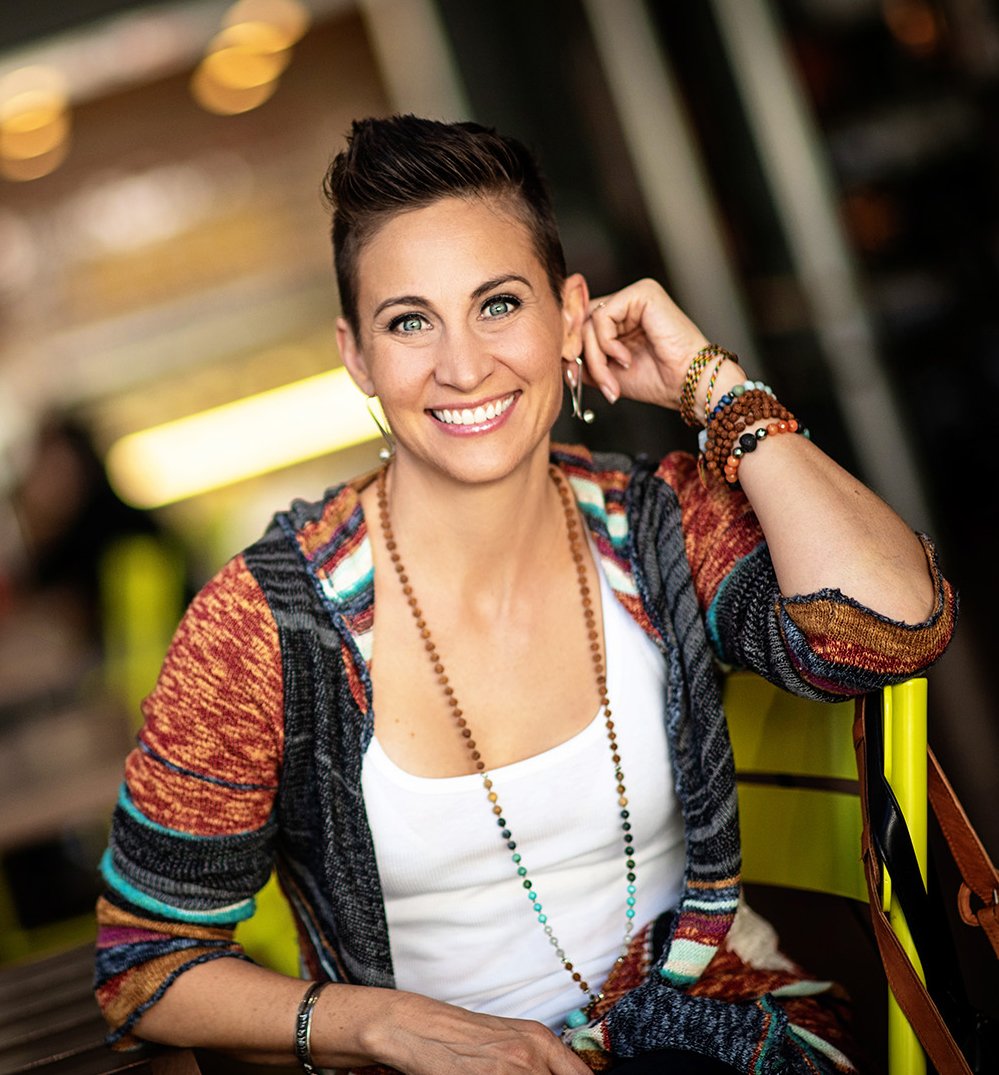Social Nine — "Participation" (Countertype)
Social Nines express the passion of psychological laziness (or sloth) through merging with the group, working hard in support of group interests, and prioritizing the group’s needs above their own. Social Nines are congenial characters with a need to feel like they’re a part of things-a need that expresses an underlying feeling of being different or not fitting in with the group or community. This person is a light-hearted, sociable, fun-loving character who expresses a driving need to be involved in the group.
The Social Nine’s need to participate comes from their deeper feeling of not belonging to the group. This feeling drives the Social Nine to overcompensate by being generous and sacrificing whatever is necessary to meet the needs of the group as a way of earning membership. They have an intense need to feel that they are a part of things, because they don’t feel that they are. They feel like they have to do something extra in order to be included in a group, so they work twice as hard to support the group to make sure they belong.
This quick reference guide captures the various aspects of each Enneagram Type including attributes, basic fears, desires, passions, virtues, fixations, defense mechanisms, and more!
Social Nines have a passion for doing what is necessary to pay the ticket for group admission, for being one with that group-but it takes a lot of effort. Social Nines can be workaholics; they feel a need to work hard and give a lot. But it’s not just work-they energetically demonstrate friendliness and sociability; they don’t show their pain; they don’t burden others; and they don’t show people how much energy it takes to devote so much effort to the community. These are people who are generous and unselfish, mindful of the group, and gifted in meeting the needs of others to the point where they sacrifice themselves to satisfy the responsibility others want to put on them.
In contrast to the other two Nine Subtypes, who tend to be more subdued characters, Social Nines are very outgoing and energetic-this is what makes this the counter-type Nine. Social Nines have a special brand of strength because they feel motivated to fight for the needs of the group. Social Nines are extroverted, expressive, and forceful, and so they go against the inertia typical of Type Nine in some ways-but on the inside they still have a sense of laziness about their own needs and wants.
Social Nines make very good leaders-the best kind of leaders, in fact-in the sense that they are good, unselfish people who strive to satisfy the responsibility given them. They can be especially gifted mediators; they naturally want to translate differing opinions so that everyone is heard and conflict in the group is avoided. They put a lot of energy into their work as a leader. They have an ability to bear a lot, sometimes to the extent that they become a “human punching bag.” These Nines give of themselves unconditionally as a response to a deeper (sometimes unconscious) fear of abandonment, conflict, separation, and the potential loss of peace and harmony.
Social Nines like to control things, and they like to talk a lot. Because they work so hard for the group, they may have no time left for themselves. They tend to have very full lives-full of everything but themselves. And while Social Nines get their identity and their sense of reality form belonging, they often doubt their own existence, their own sense of self.
The outward expression of this subtype is more happy than sad, but theirs may ultimately be a kind of partial participation: underneath their cheerful exterior, their sense of not belonging persists and creates a kind of sadness that isn’t communicated to others. They don’t feel their suffering very much-but they don’t feel extreme, euphoric highs, either. They are more in the middle emotionally-neither hot nor cold-and they may be somewhat detached from their emotions and sensations.
Social Nines can look like Type Threes because they work very hard and accomplish a lot without showing the stress of it. But they differ from Threes in that they are much more reluctant to be in the spotlight and they don’t support the group to create an image or to win admiration from others. They may also be mistaken for Twos because they are active in meeting the needs of others, but they have much less need for approval and appreciation than Twos, and are generally more emotionally steady.
Maya, a Social Nine, speaks:
I was raised as part of a group. Growing up in a large family with five siblings, I often found myself mediating between family members in order to reduce conflict and to promote tolerance, understanding, and consensus. Around controversial dinner table topics, for example, when the conversation got heated, I was often in the middle-translating, explaining, and trying to get each side to see the other’s point of view. As a result, I did well leading groups. In high school, for example, I was president of several different societies and clubs. In my early career, I often succeeded in setting up groups that promoted teamwork and cohesiveness, including a volleyball team. Today, I still screen the environment, especially new ones, to know how to best fit in and orient myself quietly to the needs of the whole. When making a decision that will affect an entire group, I like to hear all the different opinions, synthesize them, and then consolidate them in my mind before making a decision. My feelers are always out, reading the milieu around me.
Specific Work For The Social Nine on the Path from Vice to Virtue
Social Nines can travel the path from laziness to right action by getting in touch with any sadness that underlies their upbeat, congenial demeanor and identifying the ways in which their hard work for groups might distract them from their own personal evolution. If you are a Social Nine it will be important for you to slow down and take the risk of sharing more of yourself with others, especially your deeper needs, wants, and feelings. Right action means knowing what’s going on in your depths and not being afraid to surface any sadness, anger, or discomfort so that you can allow yourself to be moved by your own personal motives instead of your desire to support others. Stop hiding what is going on inside you as a way of staying comfortable and work to further your own interests as much as you work to further then needs of your family or community. Notice any fear of abandonment, conflict, or loss of peace you may feel, and allow yourself to be with those feelings as a way of loving and supporting yourself. Own the ways in which you are part of the group and take in how much people value your hard work and support as a way of actively addressing your deeper needs for belonging.
Sourced with permission from The Complete Enneagram by Beatrice Chestnut.
Type 1 Type 2 Type 3 Type 4 Type 5 Type 6 Type 7 Type 8 Type 9
Ashlie Woods
Director of Business Division & Lead Coach at Sourced
Ashlie is a transformational coach, retreat leader, dance lover and Enneagram enthusiast. She is passionate about facilitating experiences that liberate and empower people to live their fullest, more creative and self-expressed lives. She believes there is a life that wants to be lived through you and a purpose only you can fulfill.
She spent 6 years designing and delivering corporate training programs focused on leadership development and company culture before making the bold leap to start her own retreat-based business.
Ashlie now supports heart-centered business owners (coaches, consultants, creatives, healers) to market, sell and deliver their transformational work in the world using their unique magical gifts.




